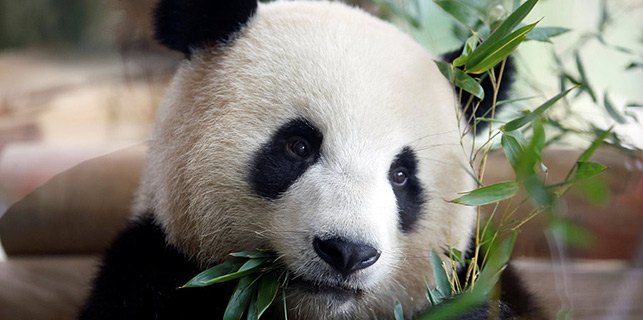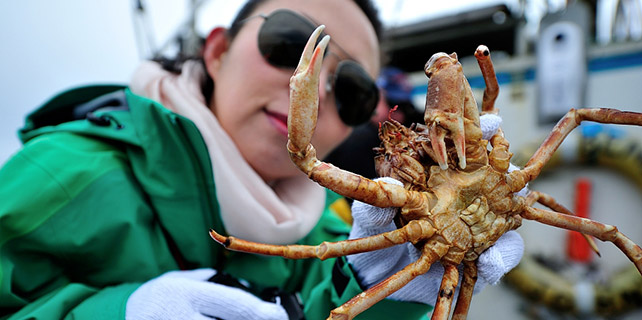New businesses blossoming in Guangxi, China's 'home of jasmine'
 |
|
Farmers picking jasmine tea in Hengxian county, in Guangxi Zhuang autonomous region. [Photo by Yu Xiangquan/For China Daily] |
NANNING — After processing tea leaves for different tea makers for 20 years, Shang Dasen decided to establish his own tea brand. Unlike many other tea makers, Shang's business, which he started in 2015 in his hometown in Southwest China's Guangxi Zhuang autonomous region, only produces and sells jasmine tea.
Located on the outskirts of the provincial capital Nanning, Hengxian county is known as China's "home of jasmine."
With his brand, which takes his name "Dasen", Shang not only wanted to start a new business, but also to encourage more villagers to return to their hometown to work growing and processing jasmine.
"I was happy to see that the villages are becoming more lively as more people return home," said Shang, whose factory buys jasmine blossoms from about 500 local families, which make up nearly 3,000 villagers.
Hengxian county is the origin of 80 percent of the jasmine on China's market and 60 percent of the world market. It has been growing jasmine for decades.
However, Ye Baofeng, a local government official, recalled that sales had not been very good in the past.
"Sometimes farmers piled their unsold flowers in the street because they didn't know where to sell them," Ye said.
In order to help the industry, the local government built a specialized jasmine plantation in 2007. An industrial park was set up for jasmine planting, processing as well as technological research and development in 2014.
With an investment of 250 million yuan ($36.5 million), a total planting acreage of about 3,666 hectares and a series of favorable policies including free rent, free entrepreneurial guidance and management consultancy services, the industrial park has attracted a number of jasmine-related businesses.
As the demand for jasmine grows, villagers are also seeing the opportunities.
Shang's company, for example, earned over 20 million yuan in 2016. It expects to double or even triple its earnings this year. As a result of expanding production, the factory now needs several metric tons of jasmine blossoms per day.
"Last year the average price we paid for the blossoms was nearly 20 yuan per kilogram, but we believe it will exceed that amount this year," Shang said.
"More people are returning from cities to work in their hometowns as they have found that jasmine can provide them with a steady income," Ye said.
Currently there are 32 farmers' cooperatives and 12 family farms in the industrial park. The county, with a population of more than 1 million, has 330,000 people employed in growing jasmine and over 130 companies producing jasmine tea, which provide over 4,000 jobs for villagers every year.
Lei Tingyi quit his job in Nanning to return to Hengxian and set up a company making jasmine food products.
"I helped my family pick jasmine flowers from the age of six. When I turned 16, I was too busy with school work to continue," said Lei, who opened his business in the industrial park in 2014.
Lei had seen food products made with flowers all around China during business trips while he worked for an automobile company. He decided he could turn the jasmine from his hometown into food products as well.
At first, most of his friends opposed the idea. "They said jasmine is so common in Hengxian and no one had ever used it in food, so there wouldn't be any demand," Lei said.
After two years, his products have been sold far beyond the county. The company now has nine products, including cake and pancakes, made with jasmine flowers.
"The local government helped us attend different exhibitions and trade fairs to find more customers," said Lei, whose company provides customized products for more than 10 companies, using their own designs or packaging, and cooperates with several production factories.
Last year, the annual production value of jasmine and jasmine tea related industries was 6.5 billion yuan in Hengxian, with the total value of the county's jasmine and jasmine tea brands reaching 18 billion yuan.
Although Shang once considered quitting the tea business due to the thin margins, he is now working on building a new production base for his "Dasen" tea.
"I will concentrate on the jasmine tea business-I hope to help make jasmine, Hengxian county's distinctive product, become more competitive on the market," he said.
















